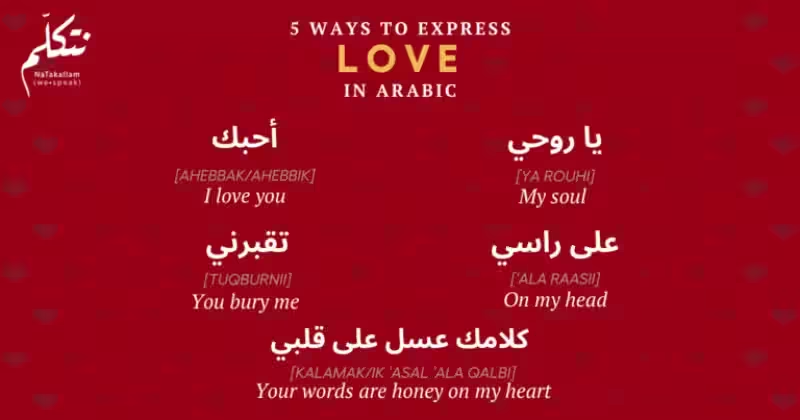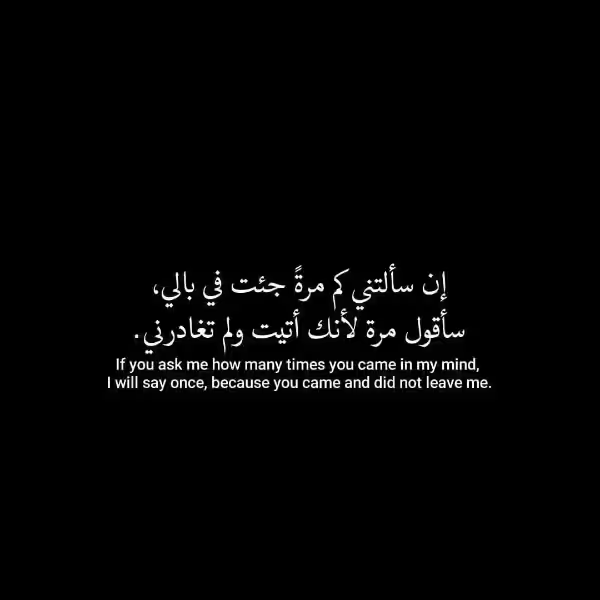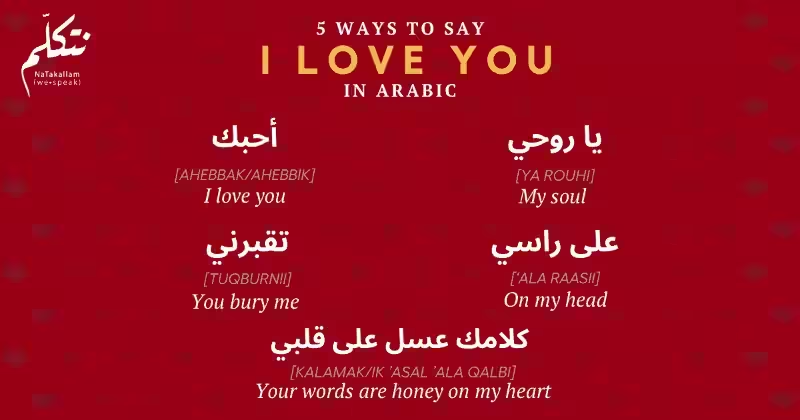
Arabic, a language celebrated for its poetic nuances, offers a treasure trove of expressions for conveying love far beyond the straightforward “I love you.” This article delves into the beautiful world of Arabic love phrases, exploring how these expressions capture the depth and complexity of affection, whether romantic, familial, or platonic.
Love, in its myriad forms, is a fundamental aspect of human connection. Expressing this profound emotion through language, especially in a new language, can be challenging, but with the right tools, it becomes a powerful and rewarding experience. Arabic, with its rich linguistic heritage, provides a unique and expressive pathway to share your feelings. This article aims to equip you with a collection of Arabic love phrases, enhancing your ability to express affection in meaningful and evocative ways.
Confessing Affection: Initial Steps
Expressing initial affection in Arabic requires a delicate balance of admiration and respect. In many Arabic cultures, direct declarations of love or romantic interest are often preceded by subtle displays of admiration. This period of courtship and getting to know one another is often viewed as a crucial step. Understanding the nuances of these early interactions can enhance the chances of developing a strong and meaningful relationship.
The first steps in expressing affection often involve showing genuine interest and admiration. For example, asking someone out for a date can be accomplished with phrases like “هل نستطيع الخروج مع بعض؟” (Hal nastaṭī’u al-khurūj ma’a ba’ḍ?) meaning “Can we go out together?”. This demonstrates a willingness to spend time together, creating a space for deeper connection. Showing admiration for the other person’s qualities and attributes, whether it’s their intelligence, kindness, or beauty, is also highly valued. Expressions such as “أنت جميلة جدًا” (Anta jamīla jiddan) for a female or “أنت جميل جدًا” (Anta jamīl jiddan) for a male, meaning “You are very beautiful/handsome,” can be powerful conveyors of admiration and affection.
Deepening the Love: Moving Forward
Once initial feelings are established, expressing deeper emotions becomes possible. In Arabic culture, expressing profound emotions is often done with a degree of respect and reverence. There is often a balance between expressing your feelings and respecting the other person’s space.
Moving beyond initial admiration, deeper expressions of love often involve heartfelt declarations of affection. A fundamental phrase for expressing love in a romantic context is “أحبك” (ʾaḥibbuka/ʾaḥibbuki), meaning “I love you.” This phrase, although seemingly simple, carries a wealth of emotion in the Arabic language. Expressions of profound love can be conveyed through more evocative phrases like “كلماتي لا تستطيع وصف حبي لك” (Kalimati la tastathi’u wasf ḥubbi laka), meaning “My words cannot describe my love for you.” Such phrases reflect the intensity of feeling and the profound connection between individuals. More intimate expressions, like “أنت حبيبي/حبيبتي” (ʾanta ḥabībī/ḥabībati), meaning “You are my love,” further solidify the bond. It’s essential to recognize the importance of context and appropriateness in using these expressions.
Commitment and Marriage: A Lasting Bond
In Arabic cultures, marriage is often viewed as a significant commitment, a journey of shared life and mutual support. Expressing commitment and the desire for a long-term relationship is an important step in this process.
Expressing a desire for a long-term commitment might include phrases like “أريد أن أكون معك إلى الأبد” (ʾarīd an ʾakun ma’aka ilā al-ʾabad), meaning “I want to be with you forever.” Alternatively, the proposal of marriage might involve the question, “هل تتزوجين/تزوجني؟” (Hal tatزوجin/tatزوجni?), meaning “Will you marry me?”. These expressions reflect the significance placed on commitment and the desire for a lasting partnership. It’s crucial to understand the cultural significance of these expressions within the specific context of Arabic society.
Terms of Affection and Love Quotes: A Poetic Touch
Arabic language, with its deep roots in poetry, offers a rich tapestry of endearing terms and evocative quotes to express love and affection. These expressions create a powerful and lasting impact on the recipient.
Adding a touch of poetry to your expressions of love can make them even more memorable. Terms like “حبيبي” (ḥabībī) for a male and “حبيبتي” (ḥabībati) for a female, meaning “my love,” are commonplace and convey a sense of endearment. “روحي” (rūḥī), meaning “my soul,” expresses a profound connection, while “حياتي” (ḥayātī), meaning “my life,” encapsulates the profound value placed on the recipient. The use of evocative love quotes, like “من أجلك ألف مرة” (min ajlik alfi mara), meaning “For you, a thousand times more,” or “أنت نور عيني” (ʾanta nūr ʿaynī), meaning “You are the light of my eyes,” further illustrates the profound sentimentality embedded within the language.
Finally, remembering that “أنا أحبك” (ʾana ʾaḥibbuka/ʾaḥibbuki), meaning “I love you,” is a widely understood and universally applicable expression of love, alongside the many other beautiful ways to express care and affection in the Arabic language. Learning these various expressions allows for a deeper understanding and the ability to celebrate the love and respect in different ways.
This article serves as a practical guide, empowering you to share your feelings and strengthen your connections. Remember to utilize online learning platforms to enhance your Arabic language skills and explore the rich literary heritage of this beautiful language even further.
Frequently Asked Questions about Love Phrases in Arabic
What is the purpose of this FAQ?
This FAQ aims to answer common questions about expressing love in the Arabic language. It draws upon information from a blog post focused on providing a practical guide to Arabic love phrases for expressing affection on special occasions and in daily life. This FAQ is not intended to be an exhaustive linguistic study, but rather a helpful resource for those seeking to learn and use Arabic expressions of love.
How can I express affection in Arabic?
Arabic offers a rich vocabulary for expressing affection beyond the simple “I love you.” The language encompasses various stages of expressing love and affection, from initial admiration to declarations of deep commitment, and even terms of endearment. The blog post highlighted expressions for different stages of a relationship, including casual affection, deeper romantic feelings, and expressions suitable for commitment. The emphasis is on expressing love through specific words and phrases that convey the nuances of affection.
Are there specific phrases for different levels of intimacy?
Yes, the blog post categorized phrases based on the level of intimacy. For example, phrases for initial attraction, admiration, and declarations of love were presented. It also included terms for expressing deeper commitment, such as those related to marriage and long-term relationships. The post emphasized that expressions should be appropriate for the context and level of intimacy.
What are some common terms of endearment in Arabic?
Common terms of endearment, such as “Habibi” (my love) and “Habibti” (my beloved), are frequently used in various relationships. Other terms, like “Rohi” (my soul mate), “Hayati” (my life), and “Eayni” (my eyes), are used to express deeper levels of affection and connection. These words, often used possessively, highlight the close bond between speaker and recipient.
How do I express admiration or initial attraction?
The blog post included phrases for expressing admiration and initial attraction, such as “Te quiero mucho” (I love you very much) and phrases that convey physical attraction. The importance of discretion, particularly in Arab cultures, was also noted.
How can I express deep love or commitment in Arabic?
To express deep love and commitment, the blog post provided phrases such as declarations of love (“Te amo”), expressions of intense emotion (“Words cannot describe my love for you”), and more committed phrases (“You are my love”, “You are my life”). It is important to consider the appropriateness of these expressions based on the relationship’s development.
What are some phrases related to marriage or long-term commitment?
The blog post offered phrases for expressing the desire for a long-term commitment, including phrases expressing the desire for marriage. These phrases reflect the importance of marriage in many Arab cultures and the need for a serious commitment.
What’s the role of poetry in expressing love in Arabic?
The blog post highlighted the richness of Arabic poetry in expressing romantic feelings. It suggested exploring Arabic poetry for inspiration in finding suitable expressions of love.
Where can I learn more about using these phrases?
The blog post encouraged readers to use online learning platforms to improve their Arabic language skills and better understand how to use these expressions appropriately.








